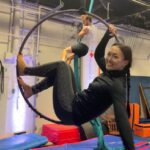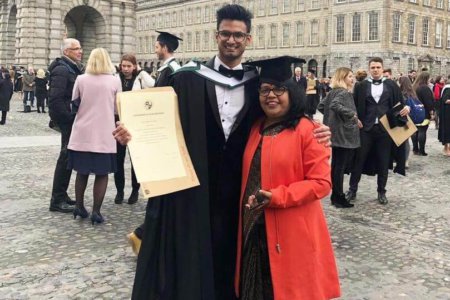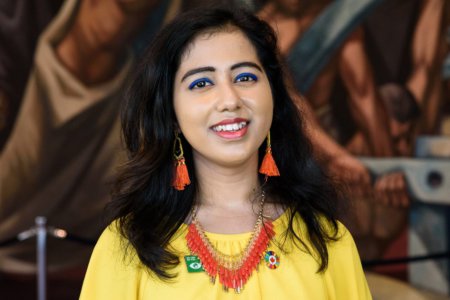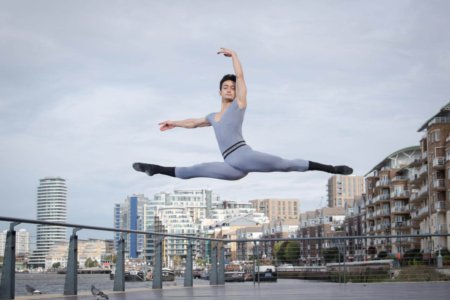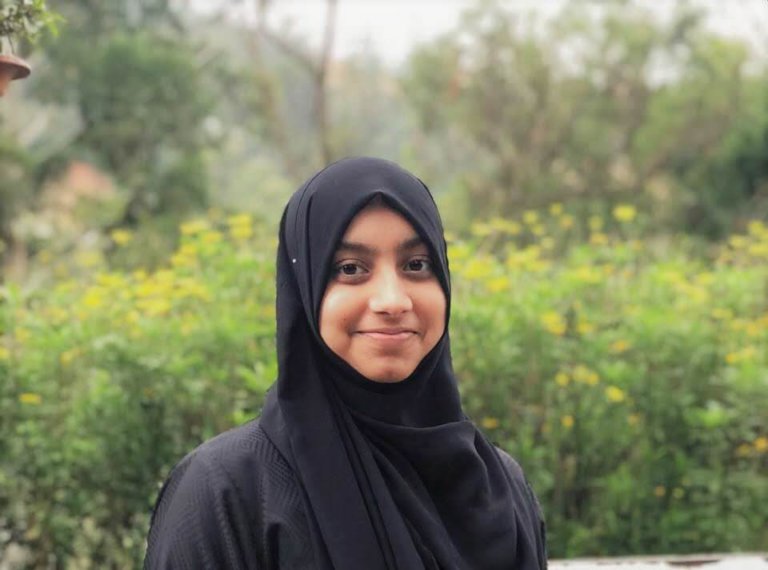
Imagine if you can wear something that blocks out surrounding sound while working from home or the library, but still hear the speaker’s voice as well so you don’t distract others. Make it clear, sound-proof and portable too. That’s the “Chatterbox Mask,” one of the three prize winners in a global student competition “Innovate for Sustainability challenge.”
The challenge was organised by Dassault Systèmes, ranked first in the 2018 Corporate Knights Top 100 Most Sustainable Corporations in the World index. Students from all over the globe submitted innovative solutions for the biggest challenges today, from affordable and clean energy to responsible consumption and production.
Mariyam Arief, a student at McMaster University in Ontario, Canada, was part of the “Chatterbox Mask” team. Originally from India, she worked with students from the University of Tokyo and team leader — Joshua Murray — from Campbell University in the US.
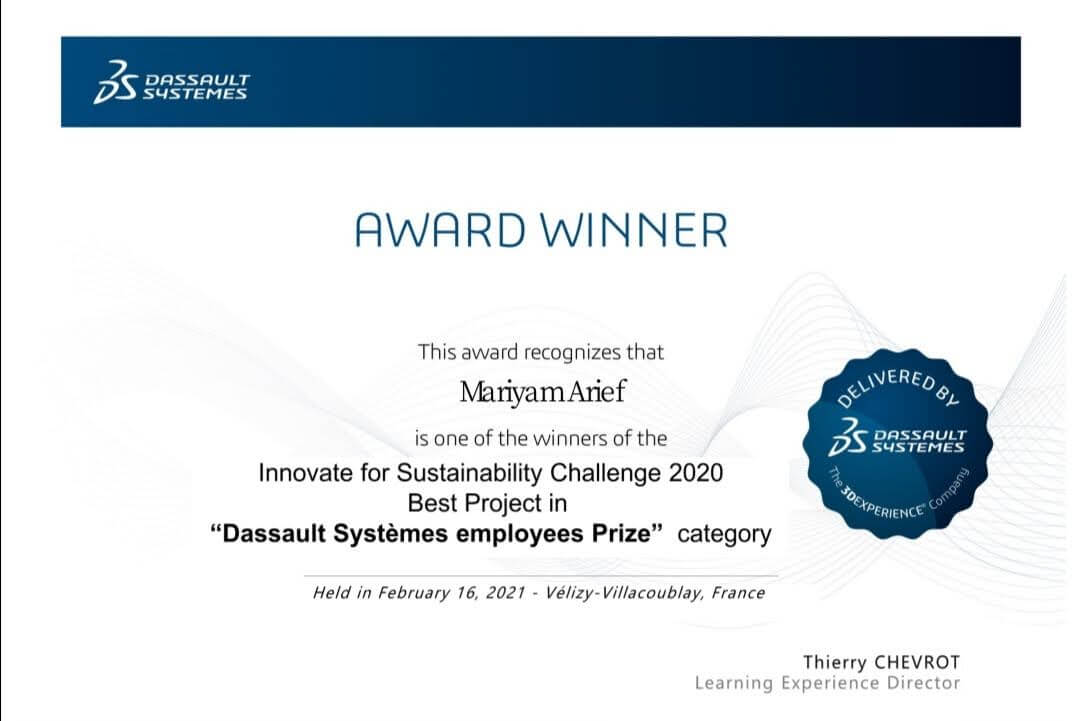
The challenge was organised by Dassault Systèmes, ranked first in the 2018 Corporate Knights Top 100 Most Sustainable Corporations in the World index. Source: Mariyam Arief
The challenges were plenty — juggling timezones, communication problems as she was collaborating from Abu Dhabi, to name a few. Below, we speak to this 19-year-old on her team’s award-winning design, what it’s like studying computer science in Canada and her future plans:
What made you choose to study computer science? Is there a personal backstory for your interest behind this?
I chose computer science because it has been a subject I have always been interested in. I used to help my father with his presentations and while doing that, I found myself wanting to learn more about it.
In high school, I chose computer science as one of my subjects. From there, my passion for it only grew. I wanted to figure out how things could happen with just one click and how the software we use everyday was created.
Why did you choose to pursue this course at McMaster University and Canada?
Since I started looking into where I wanted to study, Canada was always my first option. Naturally, I applied to several unis there and I was accepted by almost all of them.

Besides juggling timezones and communication problems, she’s also a student at McMaster University. Source: Mariyam Arief
However, McMaster University stood out for me because they held several webinars for incoming students and through that, I learnt a lot about the uni. When it was time for me to make a final decision, I chose it because it made me feel very welcomed.
Can you tell us more about the “Chatterbox” mask project? What were some of the challenges you overcame while working on this remotely?
The Chatterbox project initially came from taking part in the Thriving Online challenge held by Petrus Communications. I was put into a team of students from around the world (the US, Japan and myself) from different uni levels and backgrounds.
We had to choose a problem faced by people working online and how we could solve it so that they could thrive. After a lot of research, several discussions and getting feedback from mentors, we chose a challenge.
It was the problem of not having enough space at home to freely organise a video call. Having experienced the inconvenience of someone else being loud whilst on a call ourselves, we managed to come up with a mask that doesn’t let the sound escape into the room. Hence, not disturbing others.
We, unfortunately, did not win the competition. But as luck would have it, the opportunity arose again and we were contacted to take part of the Innovate for Sustainability Challenge organised by Dassault Systèmes and submit our already solid work model. My team continued to work in between study time and found our efforts paid off.
Of course, all this did not come without its challenges as I was the least experienced in the team, timid, and had problems speaking for the final pitch online. Also, dealing with all our different time zones also proved to be a struggle. However, through my teammates motivating me to get more involved and working in shifts, we made sure our team overcame such challenges and it was great.
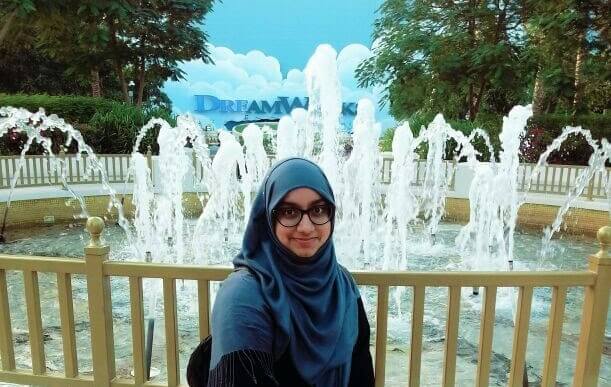
“I chose computer science because it has been a subject I have always been interested in,” Arief says. Source: Mariyam Arief
Do you think it would have made a difference if you studied computer science at a local institution?
It would, I don’t think I would come out of my comfort zone to look for challenges and would not have had as many opportunities available to me so I can prove and better myself as I do now.
What has been your most memorable class so far?
I think all of my classes have been memorable in different ways. Since the approach of every professor is different and the things taught are so varied, I can’t really pick and choose.
How have your lecturers supported you in your remote studies so far?
I really appreciate how the professors take into consideration the time differences and the amount of stress we go through due to the challenging circumstances. I remember a few of my lecturers held a Q&A session which made us comfortable because they took time out of their busy schedules so they could help us relax.
Lecturers have been a great resource to get doubts cleared and to get a better understanding of the topic. The professors have been nothing but willing to help out when someone is in doubt.
What practical learning elements are there in your computer science programme?
Since it is computer science, a lot of what we learn is directly linked with practical aspects of life. For example, concepts from calculus are used in forensics, building roller coasters and several other things.
The different programming languages and design thinking courses are used to understand what users need, come up with prototypes and develop softwares that is used in our daily lives.
What are your academic goals in this course?
My goal is to make the best of it and learn as much as I can. I want to challenge myself and experience new things. I want to improve in places and grow as a person.
I have gained several skills already, including: time management, critical thinking, problem solving, researching, project management and leadership skills through the competitions and clubs I have taken part in.
What do you plan to do after graduating?
I plan to use my skills to find a job or a field I am passionate to learn more about. If so, I will pursue a masters.





